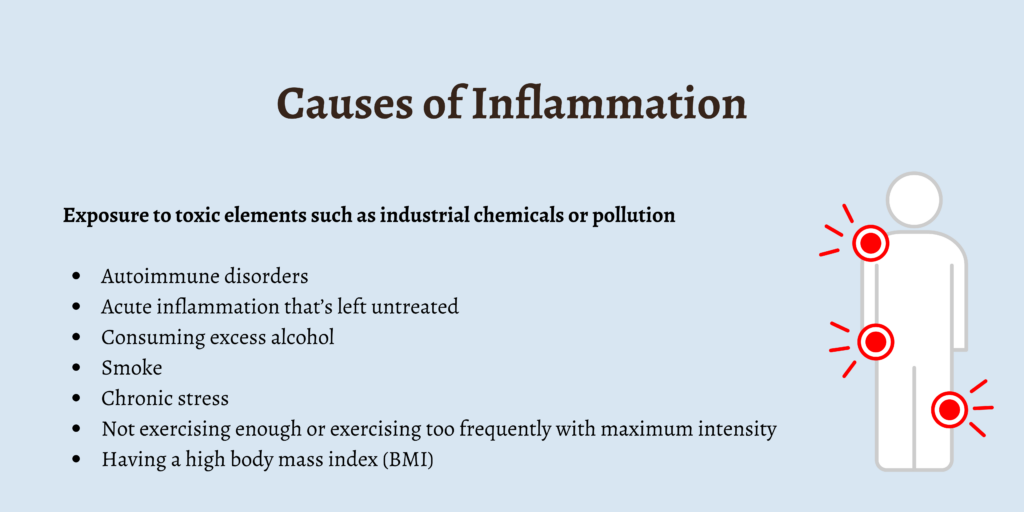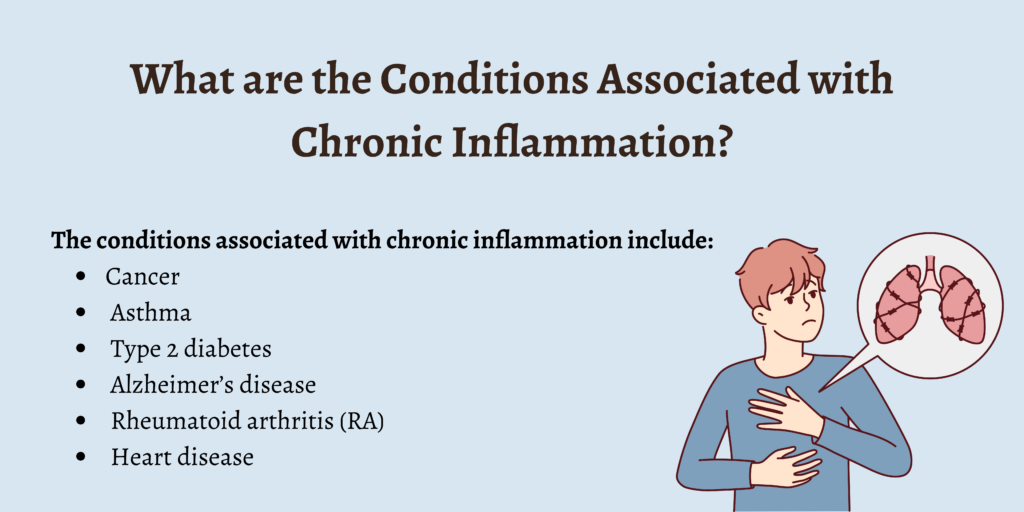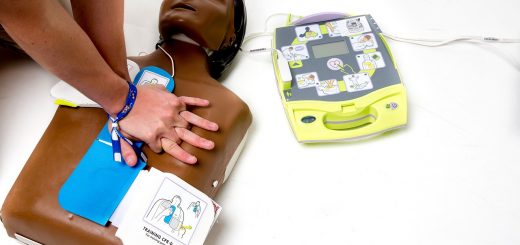Why Does inflammation occur?
When the human body suffers from an injury or comes in contact with offending agents, such as bacteria, viruses, or toxic chemicals, the immune system gets activated. This is when the immune system sends out its first responders, which are the cytokines and inflammatory cells.
The responsibility of the cells is to initiate an inflammatory response that helps in trapping the bacteria and the associated offending agents and also to begin healing the tissue that has been injured.
As a result of this, an individual could experience swelling, pain, redness, or bruising. However, inflammation can also affect systems within the human body that aren’t visible. In this article, we will be discussing the types of inflammation, its causes, how to prevent it, and so on.
Causes of Inflammation

There are multiple causes of inflammation, and some of them are as follows:
Exposure to toxic elements such as industrial chemicals or pollution
- Autoimmune disorders
- Acute inflammation that’s left untreated
- Consuming excess alcohol
- Smoke
- Chronic stress
- Not exercising enough or exercising too frequently with maximum intensity
- Having a high body mass index (BMI)
Types of Inflammation
Inflammation is of two types, namely acute inflammation and chronic inflammation.
The symptoms of acute inflammation are:
- Heat
- Swelling
- Tenderness or pain
- The skin looks flushed at the spot of the injury
The symptoms of chronic inflammation include:
- Chest pain
- Abdominal pain
- Skin rashes
- Stiff joints or joint pain
- Fever
- Fatigue
- Mouth sores
What is the Difference Between Acute Inflammation and Chronic Inflammation?
The difference between acute inflammation and chronic inflammation is that:
- Acute inflammation refers to a response to sudden body damage, such as when we cut our fingers. In order for the cut to heal, inflammatory cells are sent by the body to begin the healing process.
- Chronic inflammation is when inflammatory cells continue to be sent by the human body even when the danger outside is no longer present. An example of this is rheumatoid arthritis, wherein inflammatory cells and substances attack the tissues in one’s joint, which leads to inflammation and can damage the joints, leading to deformities and pain.
What are the Conditions Associated with Chronic Inflammation?
The conditions associated with chronic inflammation include:
- Cancer
- Asthma
- Type 2 diabetes
- Alzheimer’s disease
- Rheumatoid arthritis (RA)
- Heart disease
How is Inflammation Diagnosed?
In order to detect the presence of inflammation, your doctor will ask about your medical history, after which:
- A physical exam will be conducted to check the pattern of painful joints and look for signs of inflammation
- The exam will also check if the joints remain stiff in the morning
- The doctor will see if there are other symptoms present as well
- Blood tests and X-rays will be conducted for biomarkers like erythrocyte sedimentation rate (ESR) and c-reactive protein (CRP)
How is Inflammation Treated?
Treatment is not always necessary for inflammation. Wound care, ice, and rest are often the recommended forms of treatment for acute inflammation.
In cases of chronic inflammation, the treatment could include:
- Steroid injections
- Nonsteroidal anti-inflammatory drugs (NSAIDs)
- Supplements
What Can I Do at Home to Treat Inflammation?
Sticking to an anti-inflammatory diet helps in lowering the levels of inflammation, and a Mediterranean diet is the best for this purpose.
The foods to focus on to treat inflammation are:
- Tomatoes
- Leafy greens
- Olive oil
- Oily fish
The foods to avoid include:
- Trans fat and highly refined oils
- Fried foods
- Refined carbohydrates
- Cured meats that contain nitrates
Can Inflammation Affect Internal Organs?
If you have an autoimmune disorder, your internal organs could get affected due to inflammation, the symptoms of which will depend on the organs that face the impact.
Examples of these could be:
- Inflammation in the heart could cause fluid buildup or shortness of breath.
- Kidney inflammation could lead to kidney failure or high blood pressure.
- Inflammation of the small tubes can lead to shortness of breath.
When Should I Call the Doctor About Inflammation?
Get in touch with your doctor if you go through an injury that’s possibly worrisome and causes you to experience symptoms such as stiffness, swelling, and ongoing pain. The doctor will have to check the condition to determine the best course of action.
How Can Inflammation be Prevented?
Here are some of the ways in which inflammation can be prevented:
- Maintain a healthy weight
- Limit your intake of alcohol
- Quit or avoid smoking
- Stress management through journaling, meditation, or yoga
- Exercise about three to five times every week
FAQs
1. What are the two types of inflammation?
The two types of inflammation are acute and chronic inflammation.
2. What are the causes of inflammation?
The causes of inflammation include chronic stress, smoke, and autoimmune disorders.
3. What are the signs of acute inflammation?
The signs of acute inflammation are swelling, heat, and pain.
4. How can inflammation be prevented?
Inflammation can be prevented by exercising, avoiding smoking and alcohol, and maintaining a healthy weight.
5. What are the signs of chronic inflammation?
The signs of chronic inflammation are fatigue, fever, and chest pain.
Conclusion
The healing process associated with human bodies includes inflammation as a vital component. However, chronic inflammation can occur if the inflammatory cells stay for too long.
At home, management techniques and medicines may be recommended by your healthcare provider when you suffer from inflammation. Stress management and consuming anti-inflammatory food items often help in dealing with inflammation.






